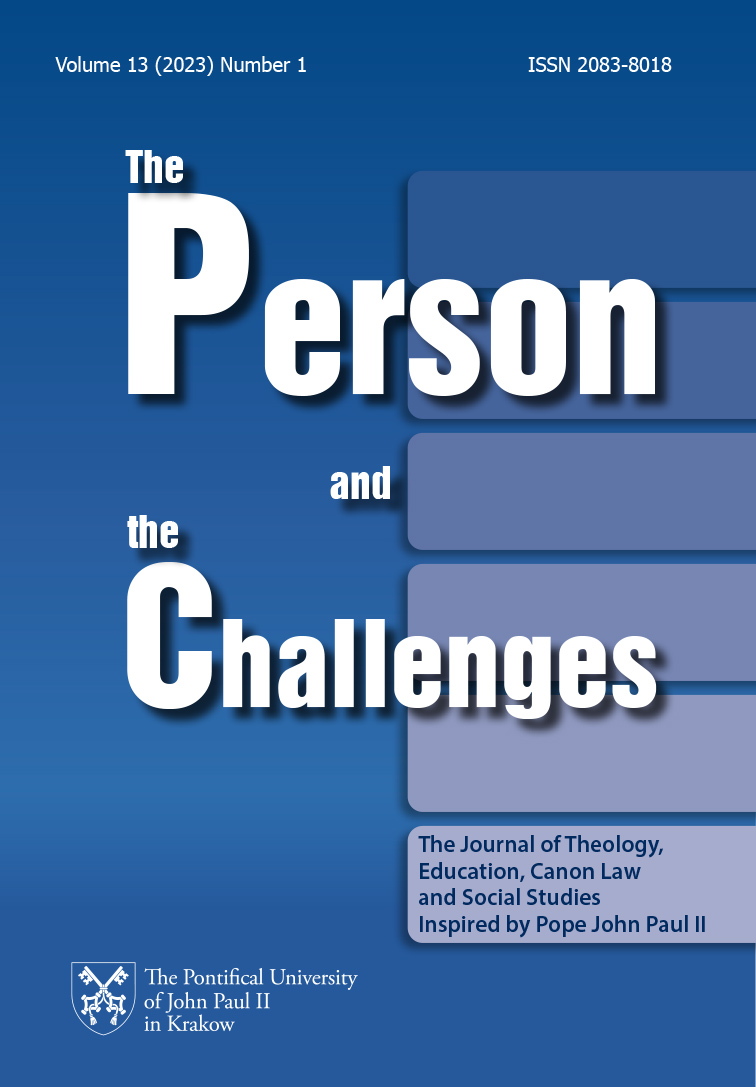The Relationship Between Pagan Fate and Christian Grace in the Thought of Józef Tischner
DOI:
https://doi.org/10.15633/pch.13114Keywords:
Fate, grace, freedom, paganism, Christianity, TischnerAbstract
This article examines one of the greatest contributions of Józef Tischner to the area of anthropology and charitology by analyzing, in a systematical way, his original thought regarding the relationship between the pagan concept of fate (fatum) and the Christian concept of grace (charis). The originality of this contribution concerns three main areas. The first one concerns the historical-charitological aspect in which Tischner proposes a new approach which helps him to emphasize the personalistic aspect of grace. Instead of considering the problem form a typical intra-Christian perspective, he approaches the concept of grace by confronting it with the historical, pagan concept of impersonal fate. Secondly, he brings to the light an ancient Greek idea of the aesthetic overcoming of the tragic defeat caused by fate, and by showing its insufficiency, he discovers and demonstrates the depth, beauty and hidden ultimate power of the aesthetic dimension of Christian grace. Finally, he argues that the problem of the relationship between fate and grace is not an issue of the ancient past, but constitutes the core of one of the greatest contemporary challenges faced by modern Christian society: the ever growing wave of neopaganism.
References
Catechism of the Catholic Church: Popular and Definitive Edition, London–New York 2004, Burns & Oates.
Keener F.M. (ed.), Virgil’s Aeneid. Translated by John Dryden, Harmondsworth 1997, Penguin.
Miłosz Cz., Tischner J., [voice in the discussion:] Dziedzictwo diabła. Spotkanie Czesława Miłosza i ks. Józefa Tischnera, „Znak” 458 (1993) 7, pp. 125–132.
Sondel J., Słownik Łacińsko-Polski dla prawników i historyków, Kraków 2006, Universitas.
Tischner J., Filozofia dramatu, Kraków 2012, Znak.
Tischner J., Łaska i wolność: czyli spór o podstawy liberalizmu, „Znak” 444, (1992) 5, pp. 4–26.
Tischner J., Nadzieja czeka na słowo, Kraków 2011, Znak.
Tischner J., Nieszczęsny dar wolności, Kraków 1996, Znak.
Tischner J., Podglądanie Pana Boga, „Znak” 511 (1997) 12, pp. 8–24.
Tischner J., Przekonać Pana Boga, Kraków 2010, Znak.
Trombik K. Wolność a łaska. Interpretacja problemu w filozofii Józefa Tischnera, „Analecta Cracoviensia” 50 (2018), pp. 173–190.
Wołowski L., Łaska i wolność u Hansa Ursa von Balthasara i Józefa Tischnera, Kraków 2019, WAM.
Downloads
Published
Issue
Section
License

This work is licensed under a Creative Commons Attribution 4.0 International License.
Authors who publish with this journal agree to the following terms:
- Authors retain the copyright and full publishing rights without restrictions, and grant the journal right of first publication with the work simultaneously licensed under a Creative Commons Attribution 4.0 International License that allows others to share the work with an acknowledgement of the work's authorship and initial publication in this journal.
- Authors are able to enter into separate, additional contractual arrangements for the non-exclusive distribution of the journal's published version of the work (e.g., post it to an institutional repository or publish it in a book), with an acknowledgement of its initial publication in this journal.
- Authors are permitted and encouraged to post their work online (e.g., in institutional repositories or on their website) prior to and during the submission process, as it can lead to productive exchanges, as well as earlier and greater citation of published work (See The Effect of Open Access).

